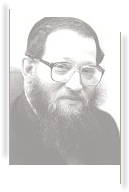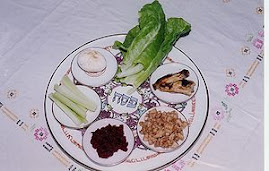
A universal crisis, millions of people stranded, billions of dollars lost, and one volcanic eruption in Iceland causes chaos across the European continent. Within all these tumult, one Jew merits a smile of loveliness from the Creator of the World, as if whispering to him - my son, the whole world was not created except for you כל העולם לא נברא אלא בשבילי.
The story begins with a young Yeshiva student, an 18 year old Yerushalmi, that came down with a fulminate hepatic failure and was mortally ill.
With little hope of receiving a liver transplant in Israel, Rav Firer sought to send the boy emergency to Brussels, the world center of liver transplants. The only problem however, is that Brussels under no circumstances transplants non-EU patients in order to save the scanty supply of livers for Europeans. Nevertheless, it was decided to send him to Brussels despite the full knowledge of negligible chance of receiving a liver.
The young Yeshiva student had no choice but to include his name to the long waiting list for a liver transplant. In the meantime, he tried to maintain his learning despite the illness, consciously aware that it will takes weeks, months, and even years till he will be able to be given a new liver. Many patients were on the waiting list, and his name was somewhere on the bottom… And when his turn does finally arrive, it must completely match his blood type and other medical criteria. If it’s not a perfect match, he will need to continue waiting … for a miracle.
However, רבות מחשבות בלב איש ועצת ה’ היא תקום Many thoughts in a man’s heart; nevertheless the counsel of HaShem shall stand. HaShem had a different plan for this young Yeshiva student and HaShem’s loyal servants produced avalanches of hot ash, rock and gas on Europe, causing Europe to completely shut down its skies into a no-fly zone. No one can leave and no one can enter; a self-imposed siege in the euro zone skies. It is during this time that a young religious Yerushalmi man in the capital of Belgium is sitting in the yeshiva learning Torah.
During the course of the shut down airspace above Europe, a person dies in the hospital in the capital of Belgium, a person whom agreed to donate his liver to anyone that might need it. Astonishingly, a liver that is perfectly parametric for our young Yeshiva student.
Health authority of Belgium began searching the liver transplant waiting list but ‘unfortunately’, not even one patient was able to fly into Belgium for the very needed healthy liver transplant due to a volcanic eruption in Iceland.
As they advanced further on the waiting list, they reached the young Yeshiva student. However it was not offered to the boy due to his lack of citizenship. As the clock closed in on the deadline for time in which the the liver’s lifespan for transplanting, the precious healthy liver cannot be wasted and must be swiftly replaced with a diseased liver, no one else was able to arrive in Belgium for the transplant except this young Yerushalmi.
With the clear Divine Intervention, this budding talmid chacham received the liver and is now recovering from surgery.
The enormity of this miracle was even greater after the successful liver transplant. The doctors said that the young yeshiva student’s liver was very deteriorated and diseased and it was a matter of days his liver would stop functioning completely. The doctors unanimously believe that if this young man had to continue waiting for the liver transplant, he would have been long dead.
from Matzav.com
How many times have we found that the bad turned into good. We do not know Hashem's plans and it can be hard waiting for a solution to our problems, Hashem has his plans.








































































